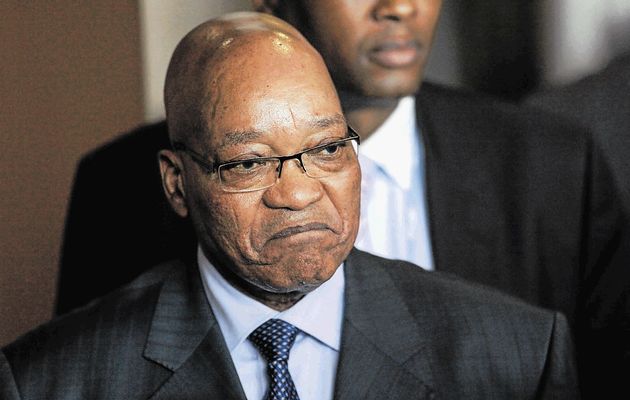-
Tips for becoming a good boxer - November 6, 2020
-
7 expert tips for making your hens night a memorable one - November 6, 2020
-
5 reasons to host your Christmas party on a cruise boat - November 6, 2020
-
What to do when you’re charged with a crime - November 6, 2020
-
Should you get one or multiple dogs? Here’s all you need to know - November 3, 2020
-
A Guide: How to Build Your Very Own Magic Mirror - February 14, 2019
-
Our Top Inspirational Baseball Stars - November 24, 2018
-
Five Tech Tools That Will Help You Turn Your Blog into a Business - November 24, 2018
-
How to Indulge on Vacation without Expanding Your Waist - November 9, 2018
-
5 Strategies for Businesses to Appeal to Today’s Increasingly Mobile-Crazed Customers - November 9, 2018
South African president pays costs in home spending scandal
The president’s office said Zuma had taken out a home loan on standard terms from the private VBS Mutual Bank to repay 7.8m rand (£405,146) – the sum determined by the Treasury in June as the “reasonable cost” he should bear. The Public Investment Corporation has a 25% stake in VBS.
Advertisement
The DA said on Monday it was critical for the President prove that he personally paid back the money as he had a “history of relying on others to pay off his debt”.
It says it’s one of the few financial institutions that offer loans in respect of land owned by traditional authorities. “The President has a history of tapping into his circle of cronies for funds”.
“We have previously articulated that President Zuma is liable for R63.9 million in fringe benefits tax, and that he must release his release tax records in order to ascertain whether this tax has been paid or not. Further more, we’re asking for an update on Mr. Minenhle Makhanya, the architect – with regards to his responsibility there; as well as the 12 Department of Public Works employees who are facing disciplinary hearings”, he said.
Accountability is a long and intricate process, which must be fully complied with.
Read the Presidency statement on the matter.
The Congress of the People (COPE) questioned the validity of the confirmation that Zuma had paid back the money.
The treasury confirmed separately that the payment had been received.
COPE said it still wanted Zuma to resign.
This was after the Constitutional Court found on March 31 that he had violated the Constitution with his handling of the Nkandla issue and would have to pay back a portion of the money spent on upgrades to his private home.
Advertisement
“As a outcome, the reasonable percentage of the estimated costs of the five measures that the President would have to pay personally would be 87.94%”.





























